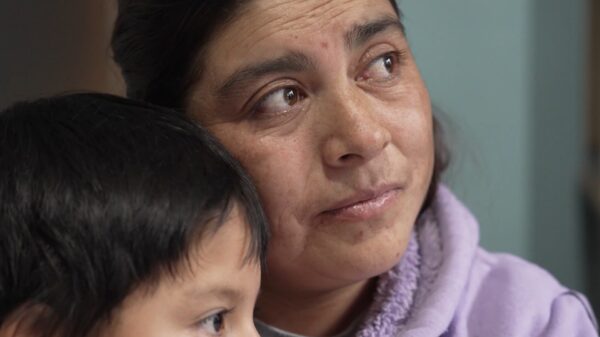Military families are voicing their concerns over potential cuts to permanent change of station (PCS) moves, a core aspect of military life. The Pentagon has directed military services to develop a strategy to halve their PCS budgets by 2030. This initiative has sparked significant backlash among families who value the opportunity to relocate frequently as part of their service.
Josh Meltz, an Army soldier, and his wife, Rubi, recently experienced the challenges of a PCS when they relocated from Fort Huachuca in Arizona to Fort Hood in Texas. With their motor home packed with five children, the family faced an arduous 900-mile journey, compounded by issues such as arriving at their new home in darkness and dealing with cattle fencing along the way. Despite these challenges, Rubi, a veteran Army spouse, expressed her preference for a mobile lifestyle over settling in one place. “I’m very much so a free spirit,” she remarked.
The proposed budget reductions come at a time when approximately 400,000 service members undertake PCS moves each year, often accompanied by family members. While some may question the appeal of frequent relocations—given the associated challenges such as increased unemployment rates among spouses, psychological stress, and disruptions in children’s education—many families embrace the lifestyle.
The Meltz family is one such example. For Rubi, the excitement of new orders and the prospect of adventure outweigh the difficulties of packing and moving. “I like going new places,” she stated, referencing their past experiences, including visits to SeaWorld and mountain climbing in Arizona. Even her son, Elijah, finds value in the transient lifestyle, expressing a desire to move on from Fort Hood due to dissatisfaction with the local military bureaucracy.
Concerns about the impact of reduced PCS moves extend beyond personal preferences. First Lt. Jonathan Shour, a Navy chaplain involved in the Alvarado v. Austin lawsuit over COVID-19 vaccine mandates, described how his family endured a prolonged stay in a hotel due to restrictions. His wife, Rebecca, echoed the sentiment that moving can provide a necessary escape from difficult situations. “Our family has suffered, especially at the most recent two commands,” she noted, emphasizing the role of PCS moves in improving family dynamics.
The historical context of the PCS system reveals its evolution since World War II, when Congress first acknowledged the needs of military families. The Dependents Allowance Act of 1942 and subsequent legislation established the framework for supporting military families during relocations. Today, the Department of Defense (DOD) recognizes the significant financial implications, estimating that PCS moves cost the government around **$5 billion** annually. A 2015 report from the Government Accountability Office indicated that the average cost per PCS had increased by **28%** over a 13-year period.
Despite the logistical and financial challenges, many military families argue for the benefits of frequent moves. Sarah Speckhart, an Army spouse, highlighted the opportunities for personal and professional growth that come with new assignments. “I really like experiencing different parts of the country,” she stated, emphasizing the dynamic nature of military life.
Additionally, developmental psychologist Julia Priftis pointed out that constant relocation fosters resilience in children. “Military kids are provided a life of travel, excitement, and new environments, which is something that is worth so much,” she said. She warned that reducing PCS opportunities could limit children’s chances to develop these essential life skills.
As the DOD moves forward with its plans, families like the Meltzes, Speckharts, and Shours are left to grapple with the potential impact on their way of life. Eight-year-old Aurora Meltz even suggested a potential compromise: “I think the families should get to choose,” she proposed, reflecting the desire for flexibility amid uncertainty.
In summary, the push to curtail PCS budgets has ignited a spirited debate among military families, many of whom view the ability to relocate as integral to their identity and well-being. As the situation develops, it remains clear that the emotional and practical implications of PCS moves resonate deeply within the military community.







































































